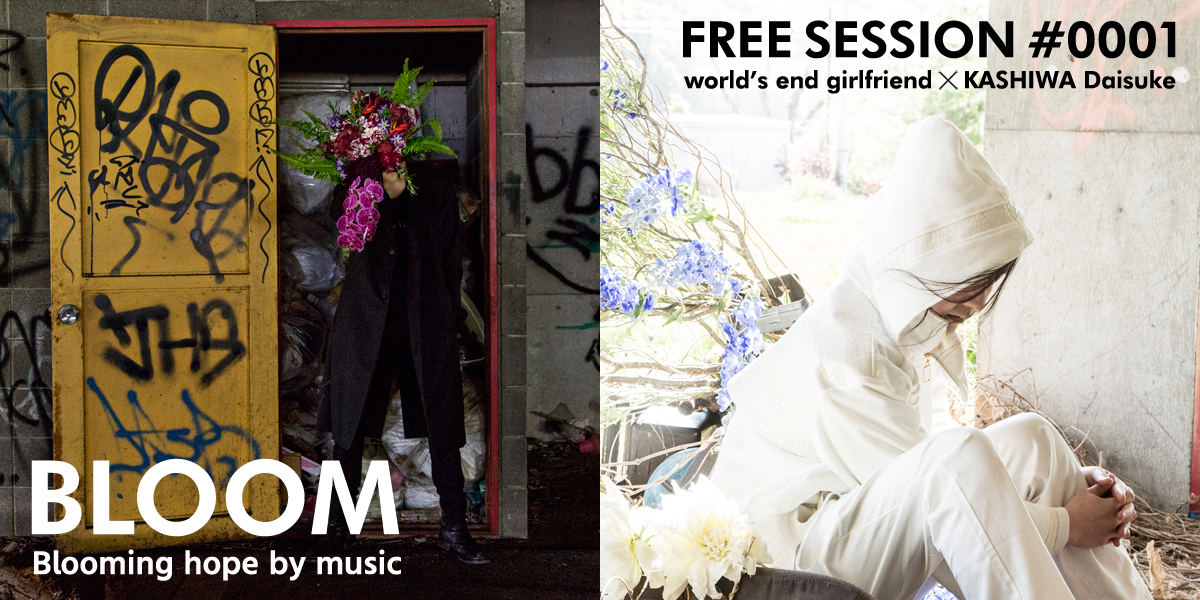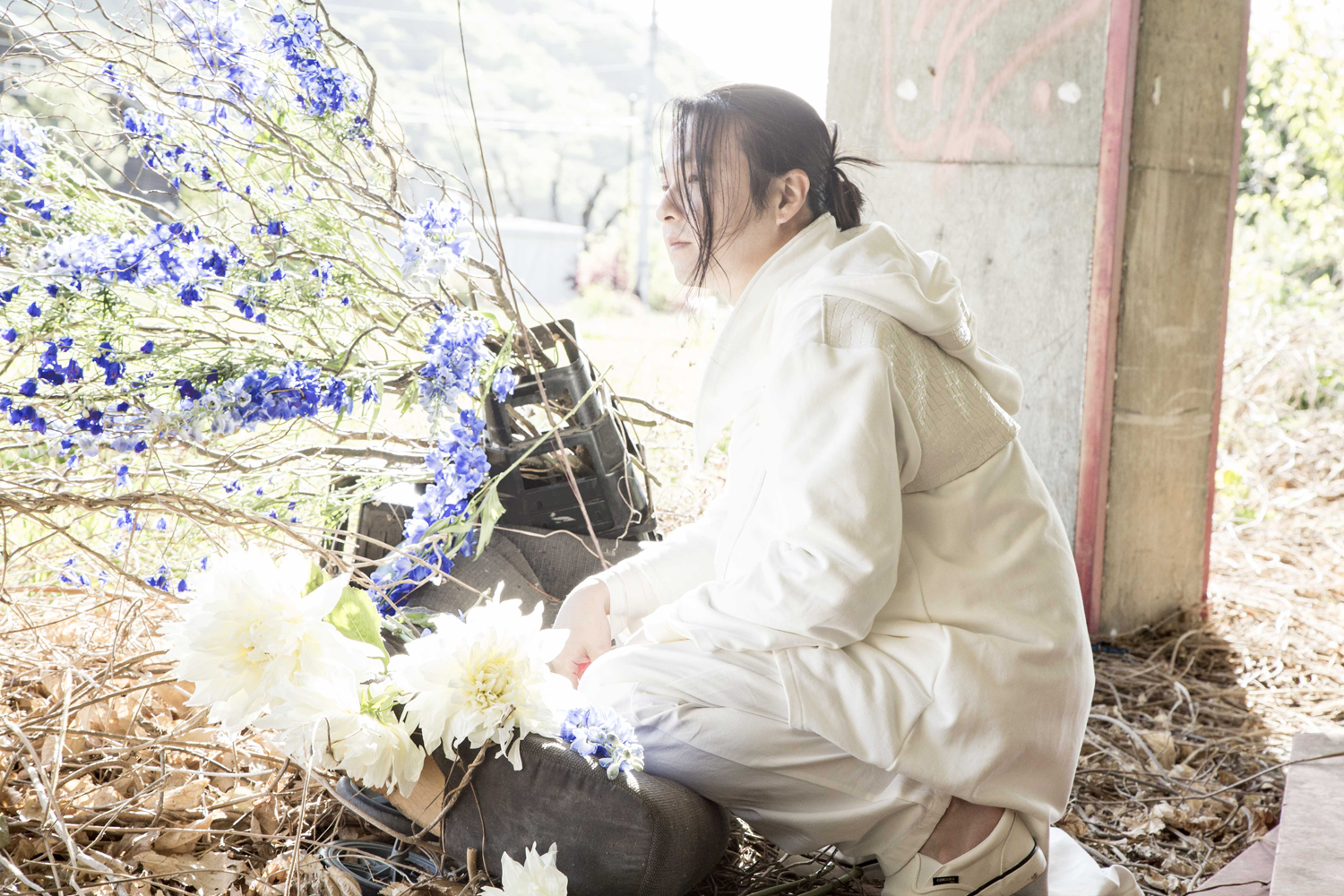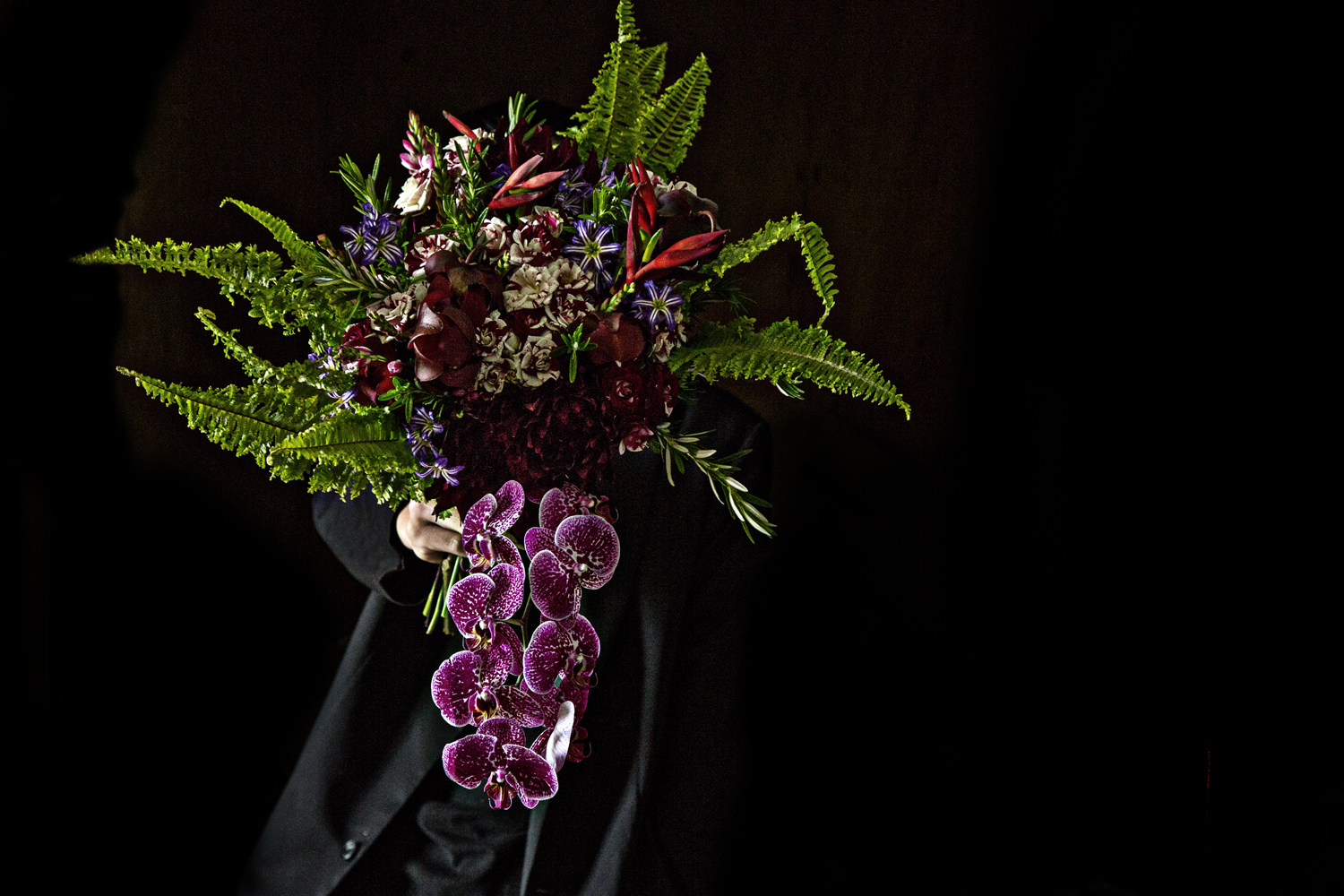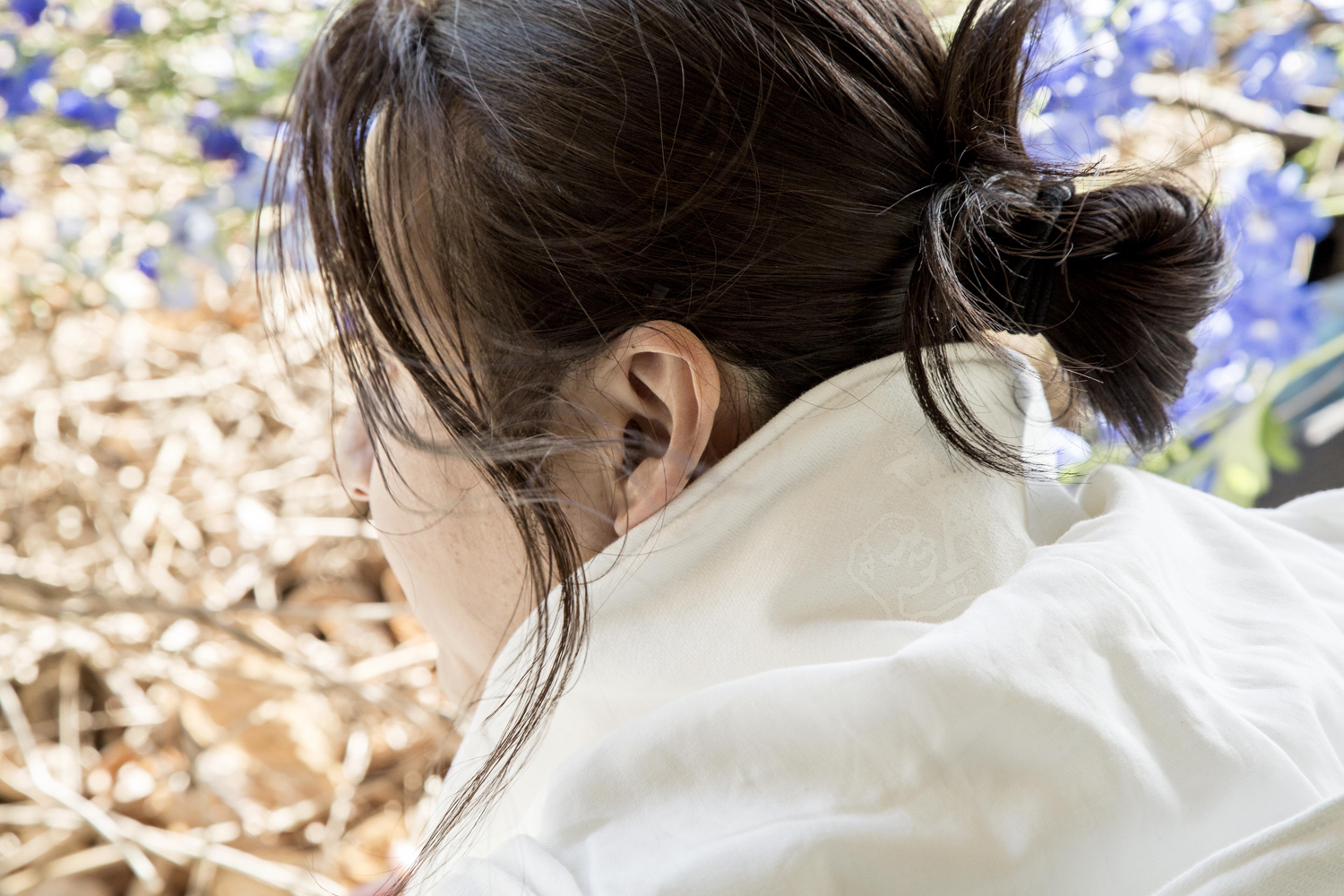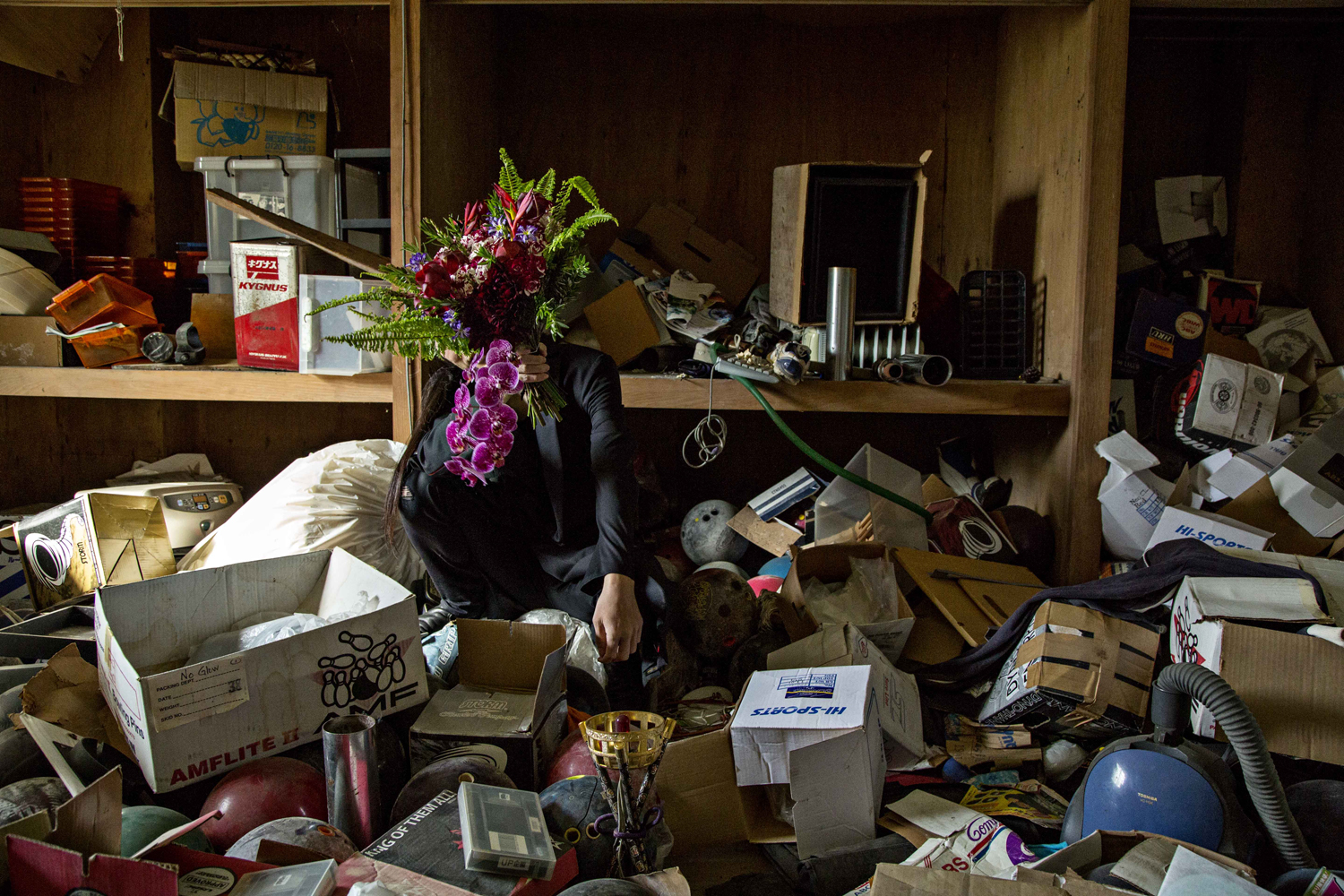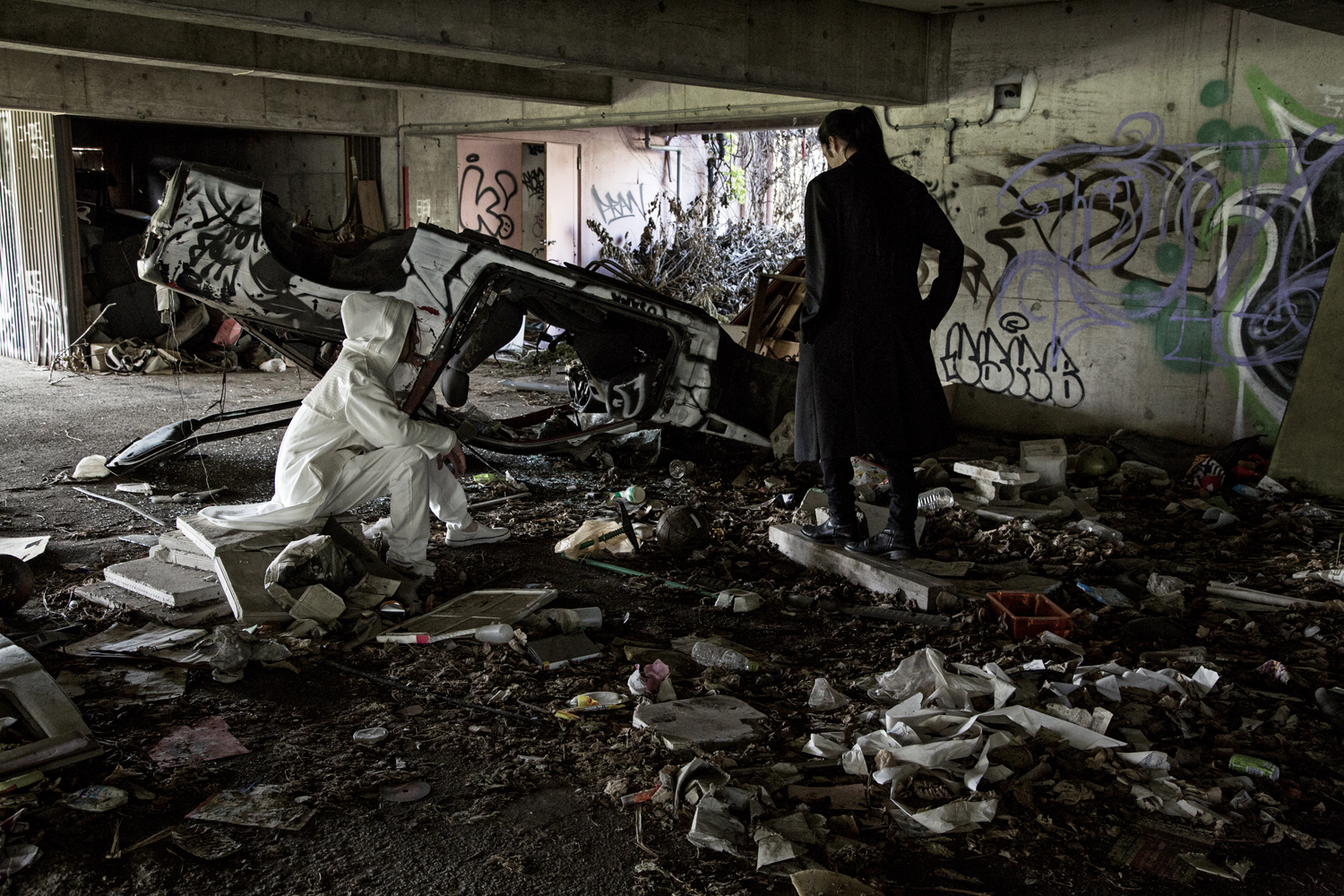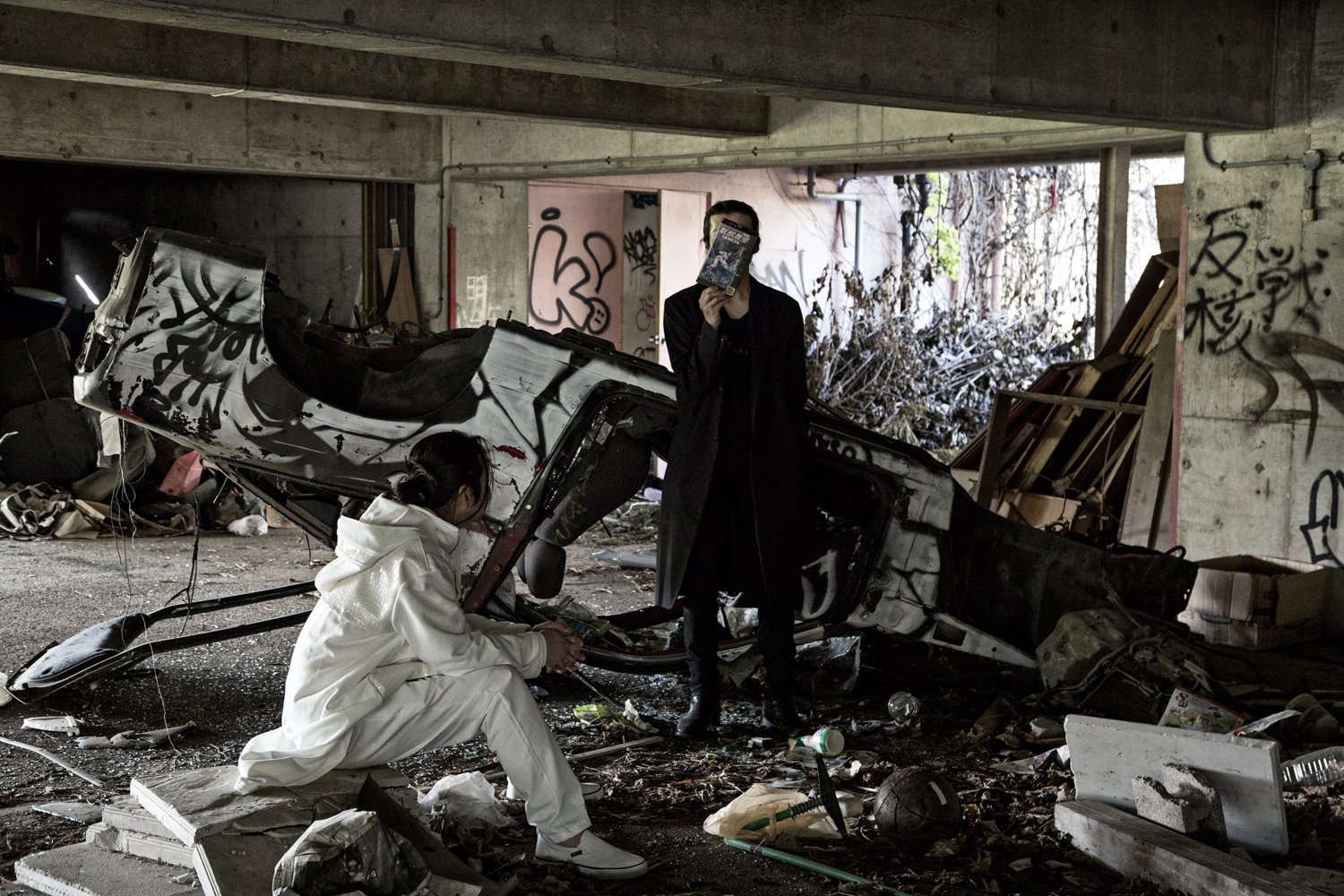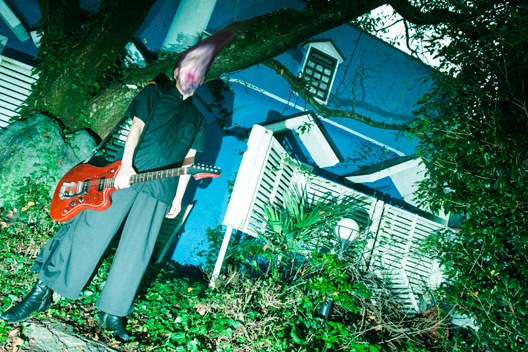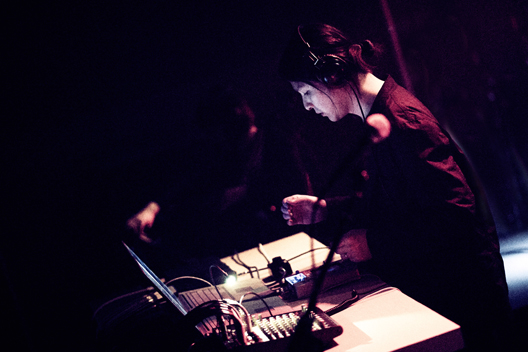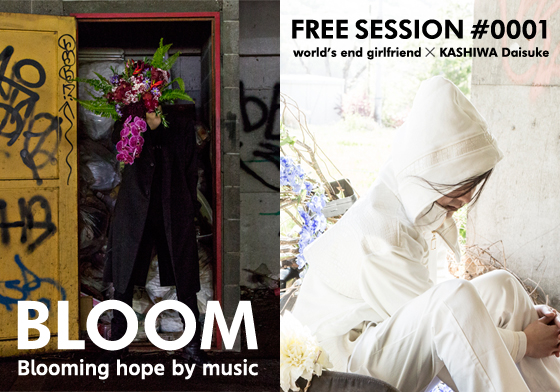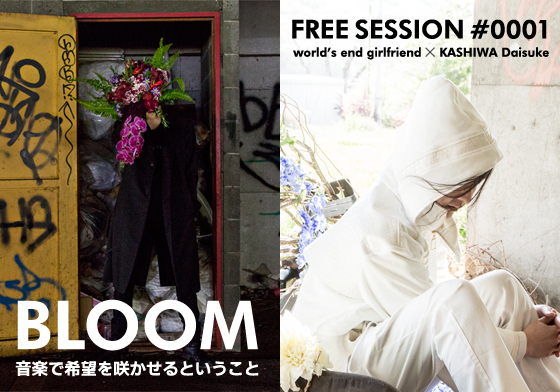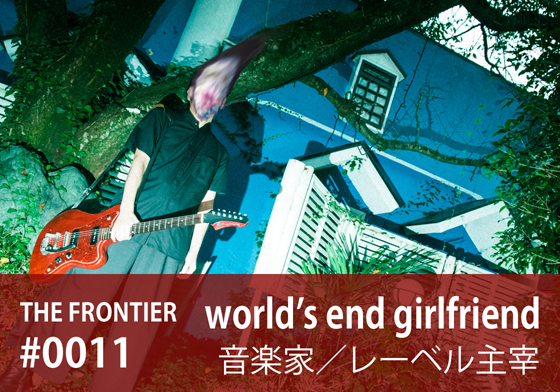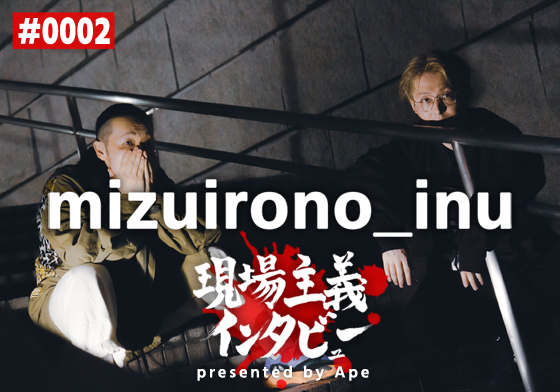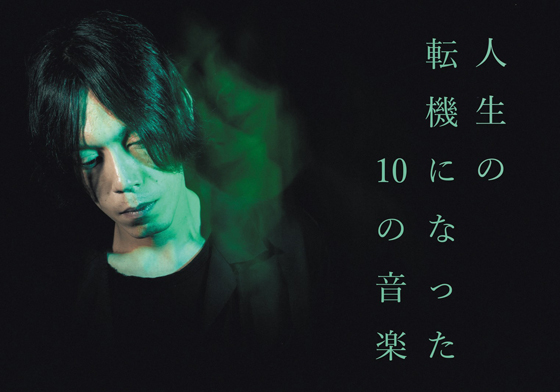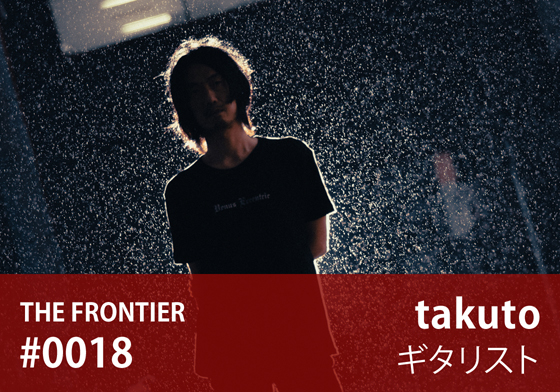FREEZINE: By the way, how do you meet in the first?
weg: First time, perhaps a gig in Fukuoka?
KASHIWA: That's right. Before I started solo, I was in a band who played in Fukuoka. We had the opportunity to play the same gig with weg. I was his fan, so I sent him an email before the event! I think I was still around 24 or 25 years old.
FREEZINE: How did you get along from there?
weg: We drank together sometimes when I went to Fukuoka for gigs.
KASHIWA: Yes. After my band broke up I decided to be a solo artist and bought a Mac, made a song with Logic. Then I asked weg to listen to it.
weg: That's why I’m still connected after that. I thought the song was very interesting.
FREEZINE: Do you remember the song you listened to?
KASHIWA: "april. # 02". That become my first album "april. # 02”. I sent the demo version of it to weg. I got a reply "I have nothing to say anymore." I thought, "Oh my god, I was abandoned!!" (laughs)
weg: Did I say that? … Well, thinking back now, the music was almost completed and I knew there was some influenced by myself. But I put in vivid vocals and saxophones in my own long length songs, aiming to break the parts that I program strictly. But his demo didn't have that kind of part, and it was just a long length song which was programmed strictly. So, if he wanted to go in that direction, it wouldn't be interesting unless he pursued one more step.
If I gave advice, he becomes closer to weg and that's not good for him, so I didn't have anything to say, maybe I thought like that.
KASHIWA: I see. That was sort of on purpose. I think those vocals saxophones and instruments play the role of a “bridge”. I had only played one instrument in the band and I was longing for and fascinated by the coolness of programming and digital editing. I wanted to bring it to the front. It's a begging for something that doesn't exist.
After that, I asked weg about his musical philosophy over drinks. I won't give you any specific details, but ... what weg told me and what I drew in my head were synchronized and I felt the vector of expression was close each other. Though I hadn't started solo activities yet at that time, I was somewhere between happiness and regret.
FREEZINE: Can you tell that musical philosophy that common with weg in words now?
KASHIWA: It’s something shouldn’t be put into words ...
weg: Definitely
KASHIWA: The world I imagined couldn't be expressed within the band. But weg has already expressed it in his own way by himself. It’s a complicated feeling. I have longing and regret. I agonize myself every day with feelings of love and hate.
FREEZINE: It's amazing to feel that you frustrated.
KASHIWA: To be honest, it's mostly frustrating. I was so frustrated that I was rampaging.
weg: Yeah. I heard that from you when I was in Fukuoka. You were crying and slammed the car door (laughs)
KASHIWA: Yes, I remember.
weg: I thought it was amazing. I don't have that sense of feeling and wondered what it's like. I think that's why he’s interesting and it’s his interesting point.
KASHIWA:well it was not the level that I could reach even I tried as hard as I could. it was totally irresistible. Compared nowadays, DTMs and home recording equipment ability at that time was very limited. Mechanism as a methodology was more important than song or song composition. It was more difficult for me than a university exam. But weg did it so easily and made albums. I was overwhelmed by a sense of failure to weg. I was terribly frustrated at that time. I listened to his 2nd and 3rd album again and again, probably I ‘m the No,1 person who listen most to those albums in Japan at that time. Seriously I always listen those albums.
FREEZINE: How did you study after that?
KASHIWA: At one moment, it suddenly cleared out. It’s like everything is connected, I was able to understand various things instantly. After that, I was able to make more and more songs just by program them. It was quick.
FREEZINE: That’s interesting. Changing the topic, I have something on my mind. There are moments when you have an overwhelming feeling like "this is the one!", for some music or musicians, including when you were young. I asked you to put it into words earlier. It's certainly difficult to put into words, but I want you to try to express it.
weg: When I come across a movie, music, novel that I really like, I know I’m really excited with it but I don’t know why I like it. I don’t know why I cry…that’s sits well with my feelings.
KASHIWA: In my case, I really like it, but I would like to it do better. Sorry to be rude.
weg: Wow, I never thought of it that way.
KASHIWA: That's why I always feel I’m creating what I want to hear. It’s self-sufficiency music.
There is various music in the world, but there is no one that matches 100% with the world within my brain. So I decided to make by myself and chase it.
FREEZINE: ... Isn't it a bit similar to views of romantic love? “I don't know why I like you, but I feel like I'm in love” and “I would definitely do this”.
KASHIWA: My view on love ... I don't know.
weg: On love, it doesn't matter whether the other person likes or dislikes you, whether you are together or not. It is best to live the way the person wants to live and be happy. That's what love and affection is for me. I feel a little bit the same for music, so if the music was born and existed in the best condition as itself, it doesn't have to be my own work.
FREEZINE: I see. What does KASHIWA think about love?
KASHIWA: I'm not sure. I don't really understand love or affection.
But from what weg said, I think weg has a very bird's-eye view and is very objective. I'm subjective and even I believe that people are fundamentally good but I am an individualist. Perhaps I don't like people coming into my territory.
FREEZINE: Whether it's music or people, if you find it’s good one, and you feel it “just good”, that means “love” to you. Is it correct that your way of feeling” love”?
KASHIWA: It's difficult to answer because I've never thought that way.
Of course I do have a lot of my favorite music but my perfect music is...
FREEZINE: That's the point.
KASHIWA: Yes. But weg's 3rd album ("Dream's end come true") is the supreme work for me. It's in a totally different class. I fell in love with progressive rock when I was a high school student. Then I was influenced by noise and contemporary music. The 3rd album contains all of tgat. It’s a great album. But I still want to pursue the possibilities beyond that great album. I want to make it for myself-satisfaction with my own hands. Yes, probably my case is self-satisfaction.
FREEZINE: That's the motivation for creation. What motivated you to compose, weg?
